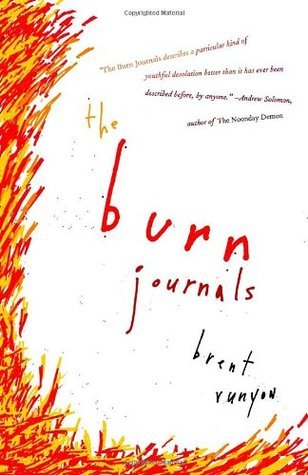
Jay's Journal
Book Description
Two worlds collide in the piercing gaze of a soul teetering on the brink. Jay's Journal captures the raw turmoil of adolescence, where despair dances with fleeting moments of hope. As secrets unfold and friendships fracture, the haunting struggle for identity and belonging becomes suffocatingly real. Each page drips with emotion as Jay navigates the shadows of mental illness, grappling with love, betrayal, and the crushing weight of expectations. With every entry, the urgency of his fight intensifies. What happens when the quest for acceptance spirals into a battle for survival? Are we brave enough to face our own truths?
Quick Book Summary
"Jay's Journal" by Beatrice Sparks is a haunting fictional account, presented in diary form, chronicling the emotional and psychological struggles of a teenage boy named Jay. As Jay navigates the complexities of adolescence, he is pulled into a world of secrecy, despair, and isolation. His journal entries vividly depict his battle with mental health, the longing for acceptance, and the devastating effects of feeling misunderstood. The lines between reality and paranoia blur as Jay becomes entangled in dangerous behaviors and questionable relationships. Throughout his journey, themes of identity, belonging, and the weight of societal and familial expectations loom large. Ultimately, the novel is a poignant exploration of a youth's search for meaning and hope amid darkness.
Summary of Key Ideas
Table of Contents
Struggle for Identity and Acceptance
Jay's journal entries open a window into the turbulent world of adolescence—a time marked by uncertainty, vulnerability, and an urgent search for self. Jay feels like an outsider, struggling to bridge the gap between the expectations of his family and peers and his own sense of self. He yearns for authentic connection and validation, yet he is plagued by feelings of inadequacy and doubt. As he documents his experiences, it becomes evident that the struggle for acceptance is not just external but a deeply internal battle.
Impact of Mental Illness
Amid his turmoil, Jay begins to experience symptoms of depression and anxiety. Through his candid writing, the psychological burden of mental illness becomes palpable. He describes waves of hopelessness and isolation, feeling misunderstood by those closest to him. His mental health deteriorates as he turns to questionable coping mechanisms—substances and risky behaviors—in an attempt to numb his pain or escape mounting pressures. Jay’s story highlights the critical importance of recognizing and addressing mental health issues among adolescents.
Influence of Peer Pressure and Relationships
The journal chronicles how Jay’s peer relationships become both a solace and a source of destruction. Drawn into a group of friends dabbling in the occult and other dangerous acts, Jay’s need for belonging leads him to make increasingly reckless choices. The power of peer pressure and the desire not to be left out drive Jay away from healthier influences. These relationships, though initially providing a sense of community and rebellion, ultimately exacerbate his sense of alienation and spiral into betrayals and broken trust.
Descent into Despair and Dangerous Choices
As Jay delves deeper into secrecy, distancing himself from family and outsiders, his reality grows distorted. The secrecy becomes a double-edged sword—temporarily protecting him from scrutiny but also isolating him from genuine support. Jay’s attempt to keep his struggles hidden only fuels his descent into paranoia and despair. The novel explores how secrecy, especially around mental health and harmful behaviors, can have devastating consequences when support systems are shut out.
Consequences and Legacy of Secrecy
The story culminates in the irreversible fallout of Jay’s choices. The consequences of secrecy, untreated mental illness, and alienation leave a lingering impact on Jay and those around him. The final entries serve as a haunting reflection on how the relentless quest for acceptance and meaning, when unmoored from support, can lead to tragic outcomes. "Jay’s Journal" underscores the need for compassion, open dialogue, and understanding in the face of adolescent struggles, leaving readers with profound questions about empathy, awareness, and prevention.
Download This Summary
Get a free PDF of this summary instantly — no email required.





